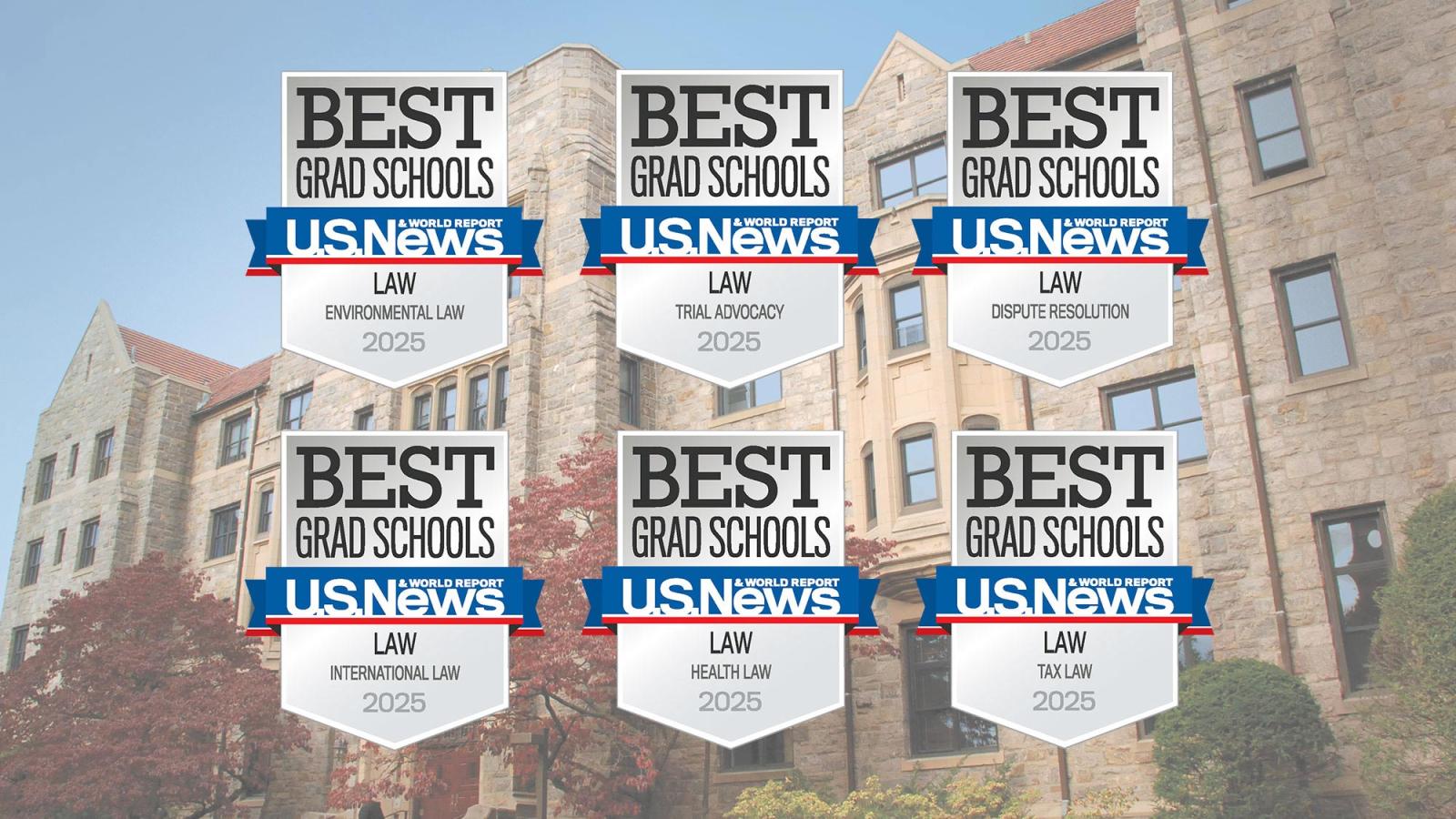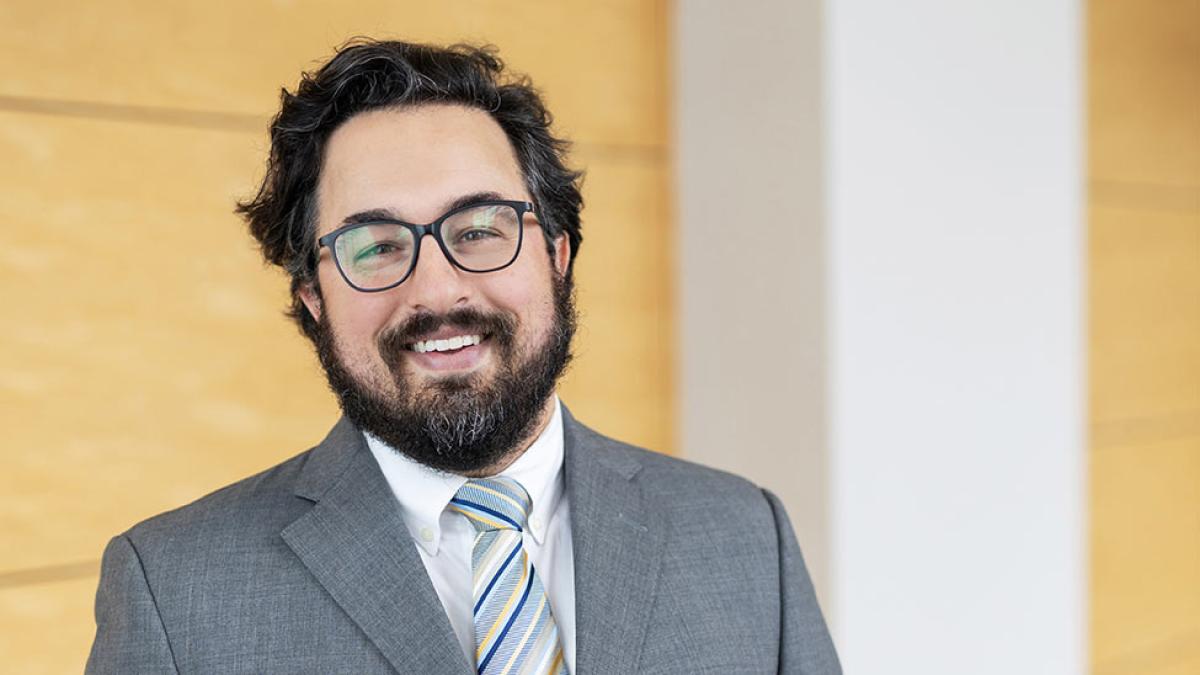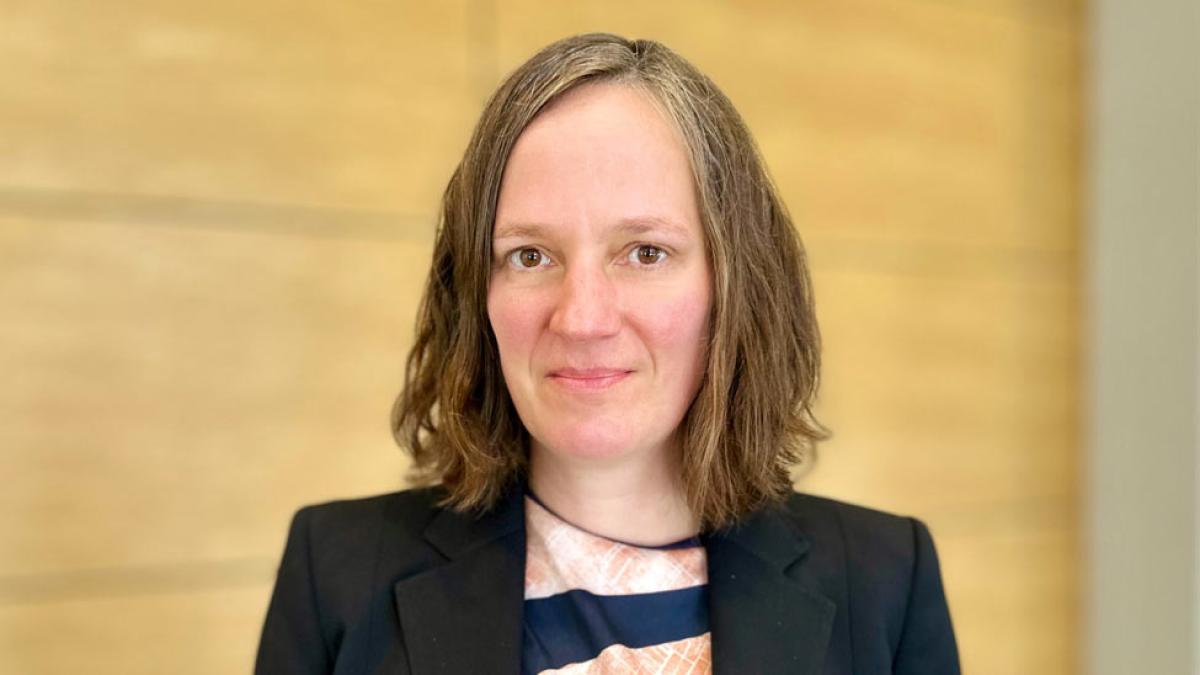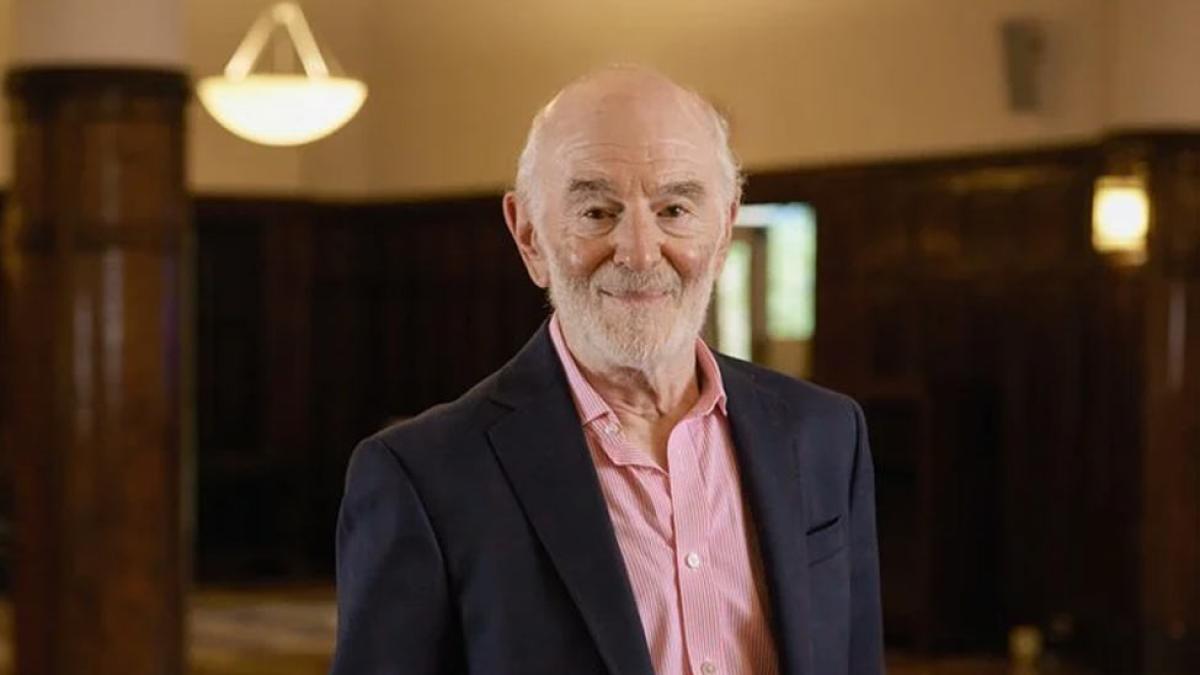Elisabeth Haub School of Law Professor Josh Galperin speaks with Bloomberg Law on the recent DOGE ruling, critiquing the court’s narrow reading of Elon Musk’s authority.
Pace University’s Elisabeth Haub School of Law Ranks #1 in the Nation for Environmental Law for the Fifth Consecutive Year

Pace University’s Elisabeth Haub School of Law is once again ranked #1 in the country for Environmental Law by the latest U.S. News and World Report rankings, released today. Haub Law was also ranked #19 in the nation for its trial advocacy program as well as #18 for Dispute Resolution. Several other programs at Haub Law were recognized in the top rankings this year, including International Law, Health Law, Tax Law and the Law School's Part-Time Program.
“For five years in a row, Haub Law has received the number one ranking for Environmental Law,” said Dean Horace E. Anderson Jr. “Our Environmental Law Program extends beyond the classroom, offering opportunities through our renowned Environmental Litigation Clinic, our Food and Farm Business Law Clinic, our Sustainable Business Law Hub, numerous internship and externship opportunities, and much more. We are also tremendously proud of the continued success of our trial advocacy program. Our students learn by example, both in and out of the classroom, and we are fortunate to have top advocates guiding our students. Haub Law continues to excel in all facets – with leading-edge programs, top faculty, innovative scholarship – attracting high performing students who will guide us as future leaders and advocates.”
Established in 1976, the Pace | Haub Law Environmental Law Program has a global footprint, addresses today’s most pressing challenges, and is recognized both nationally and internationally as a leading legacy in environmental law. The program’s continued evolution includes new partnerships, innovative programs, and leading faculty scholarship that is shaping the future of environmental law and policy on a national and global scale. Initiatives such as the Sustainable Business Law Hub, the Environmental Law and Policy Hack Competition, the Future Environmental Law Professors Workshop which trains new and aspiring professors pursuing a career in environmental law, create new opportunities for training, policy, and research that address global environmental challenges. Other well-known programs and opportunities at the school include the annual hosting of the preeminent environmental law moot court competition, the Jeffrey G. Miller National Environmental Law Moot Court Competition. The Law School also hosts lectures and panels throughout the year featuring environmental scholars, advocates, and policymakers, and it recognizes leading international environmentalists through the annual presentation of the Elisabeth Haub Award for Environmental Law and Diplomacy, considered one of the world’s most distinguished awards in the field of environmental law.
“For five years in a row, Haub Law has received the number one ranking for Environmental Law. Our Environmental Law Program extends beyond the classroom, offering opportunities through our renowned Environmental Litigation Clinic, our Food and Farm Business Law Clinic, our Sustainable Business Law Hub, numerous internship and externship opportunities, and much more."
The environmental law program also offers an opportunity for several different joint degrees with the Yale School of the Environment. For over twenty-five years, Haub Law students have had the option to pursue a JD from Haub Law and a Master’s in Environmental Management (MEM) from the Yale School of the Environment. Recently, this relationship has expanded, and to further bolster the program, three new joint degree options were recently added, including a JD/Master of Environmental Science (MESc), JD/Master of Forestry (MF), and a JD/Master of Forest Science (MFS).This unique relationship enables Haub Law students–who are already earning a degree at the number one environmental law school in the country–to pair their JD with an interdisciplinary master’s degree at Yale. Haub Law also proudly co-hosts the New Directions in Environmental Law Conference (NDEL) held at Yale Law School as a collaborative event organized by students from Haub Law, Yale Law School, Yale School of the Environment, and Vermont Law & Graduate School.
Haub Law offers more than 40 environmental law courses, as well as dozens of internship and externship opportunities. In recent years, the Law School has expanded its environmental law faculty, attracting prominent scholars in the field as full-time and visiting assistant professors, all of who are frequently sought after to speak on prestigious panels, offer media commentary, and more. Students have the opportunity to research emerging areas of environmental law alongside experts in the field through the Environmental Law Program’s various centers and institutes, including the Pace Energy & Climate Center and Land Use Law Center, and can directly represent clients through the Environmental Litigation Clinic and the Food and Farm Business Law Clinic. These opportunities provide Haub Law students with the tools they need to be national and international leaders in environmental law.
"Our Environmental Law Program reflects the necessity of a rigorous classroom education coupled with varied experiential opportunities,” said Jason J. Czarnezki, Kerlin Distinguished Professor of Environmental Law and Associate Dean for Environmental Law Programs and Strategic Initiatives at Haub Law. “I am immensely proud that the work of our Environmental Law Program has been recognized by U.S. News and World Report for the fifth year in a row with the #1 ranking. Our faculty is made up of experts in their respective areas of environmental law, producing research and scholarship that leads to open dialogue, thoughtful problem solving, and actively working with students to be environmental leaders of the future. The environmental challenges we face are global and we are committed to training forward thinking students who are ready to hit the ground running at graduation to work on real world solutions to these challenges.” Haub Law recently announced the appointment of an accomplished leadership team to continue to guide its top ranked Environmental Law Program into the future.
In recent years, the trial advocacy program at the Elisabeth Haub School of Law has continued to gain notoriety, ranking #19 in the nation this year by the latest U.S. News and World Report rankings. Haub Law is recognized among the top 10% of schools in the nation for its trial advocacy program. In the last few months alone, the advocacy program has had several significant successes in trial competitions, including placing first and second in the 17th Annual NLLSA Moot Court Competition Held in Puerto Rico. Additionally, late last year, Haub Law’s trial team reigned as regular season champions for the National Trial League Competition. Over the last year, Haub Law has had 40+ Mock Trial and Moot Court Teams, with an average of over 150 student participants on these teams as a whole. Further, as a founder of the preeminent International Criminal Court Moot Court Competition (ICC Moot) held annually in The Hague, Netherlands, Haub Law hosted the 2025 Regional Round for the Americas and Caribbean of the ICC Moot, with a Haub Law team qualifying to advance to the global ICC Moot Court Competition.
“Our advocacy program has grown tremendously over the years into a top-tier and very competitive program,” said Louis V. Fasulo, Professor of Trial Practice and Director of Advocacy Programs. “Led by experienced coaches, many of whom are Haub Law alumni, our teams consistently compete in national and international competitions, regularly finishing at or near the top, while also receiving individual accolades in recognition of their performances. Haub Law has committed itself to training and graduating the next generation of impactful advocates and these latest rankings reflect that. There is a continued strong upward trajectory on the horizon for Haub Law’s advocacy program.”
Haub Law had several other programs recognized in this year’s rankings, including the Tax Law program. The school has a longstanding history of educating students in business and tax-related matters. Recently, Haub Law proudly hosted the American Tax Policy Institute (ATPI) and Pace Environmental Law Review (PELR) Symposium on Tax Lax, the Environment, and Climate Change. The symposium, held on Pace University’s downtown campus, explored the intersections of tax law, climate change, and environmental policy, bringing together leading experts, policymakers, scholars, and practitioners to discuss the critical role of tax policy in addressing pressing environmental challenges and advancing sustainability. The innovative symposium, a joint effort between the American Tax Policy Institute (ATPI) and the Pace Environmental Law Review (PELR), two organizations dedicated to advancing scholarship and policy discussions in their respective fields, is another example of the ways that Haub Law brings traditional educational concepts to life through cross collaboration.
Haub Law’s Health Law program has also seen recognition in the rankings. A leader in the health law field, Haub Law offers two options for its Advanced Certificate in Health Law and Policy – one for students enrolled in the School’s JD program and a second option for attorneys and non-attorney professionals looking for a flexible option to advance their careers. Recently, it was announced by Haub Law that Lauren Roth, an accomplished scholar in health law and business law, will join the faculty as an Associate Professor of Law beginning in Fall 2025. Professor Roth will teach courses in corporations, contracts, and health law while also contributing her expertise and leadership to Haub Law’s Health Law and Policy Certificate program.
Alternative Dispute Resolution has become an area of prestige at Haub Law as well, with a resulting recognition in the rankings. The school offers robust curricular and extracurricular opportunities for students to explore and develop skills in alternative dispute resolution (ADR) processes, and learn about the law governing those processes. Over the past years, we have made significant strides in the field of ADR through outstanding student achievements, impactful faculty scholarship, and notable faculty engagement with the broader ADR community and beyond. Recently, Professor Jill I. Gross, Vice Dean for Academic Affairs at the Elisabeth Haub School of Law at Pace University, a well-respected ADR scholar, published a new book, The Federal Arbitration Act: Successes, Failures, and a Roadmap for Reform. The school is also home to The Amelia A. Gould Representation in Mediation Clinic, which offers students the opportunity to advocate for otherwise pro se parties in mediation. In one of the only clinics in the country devoted to representing clients in mediation, students devote their time to meeting with clients, drafting mediation briefs, serving as advocates in mediation, and negotiating settlement agreements on behalf of clients. Students also participate in simulated mediation exercises, facilitated by mediators in the community, as a confidence and collaboration building experience. The Fairbridge Investors Rights Clinic at Haub Law provides students with hands-on experience navigating the complexities of securities and cryptocurrency disputes – fielding inquiries from investors, offering guidance on FINRA arbitration for stock market losses and AAA arbitration for cryptocurrency losses. Through this work, students deepened their understanding of financial regulations and arbitration procedures. Additional recognitions in the rankings this year include Haub Law’s part-time program and international law program.


